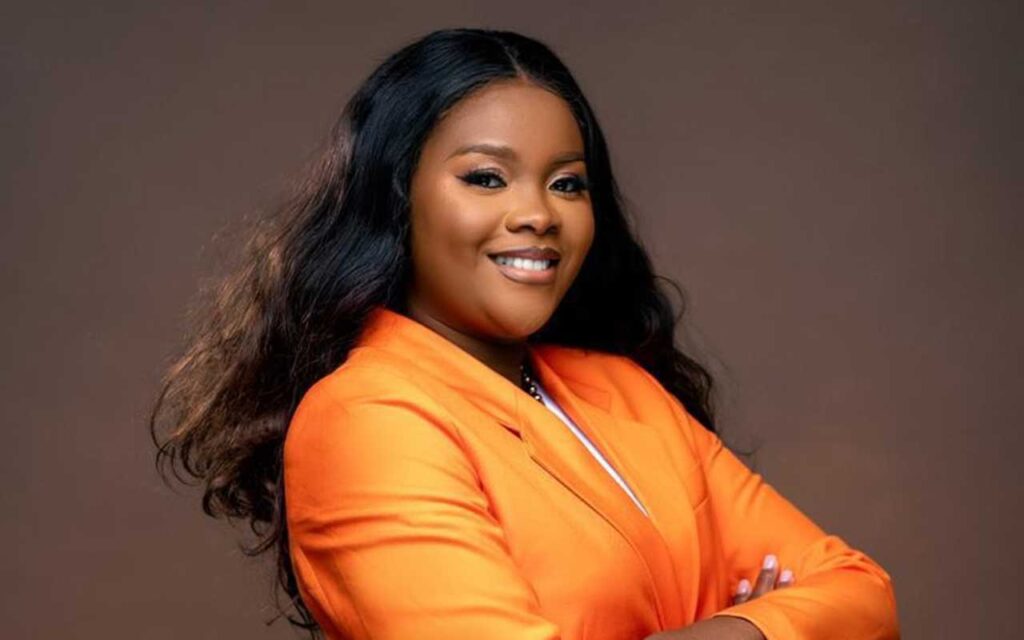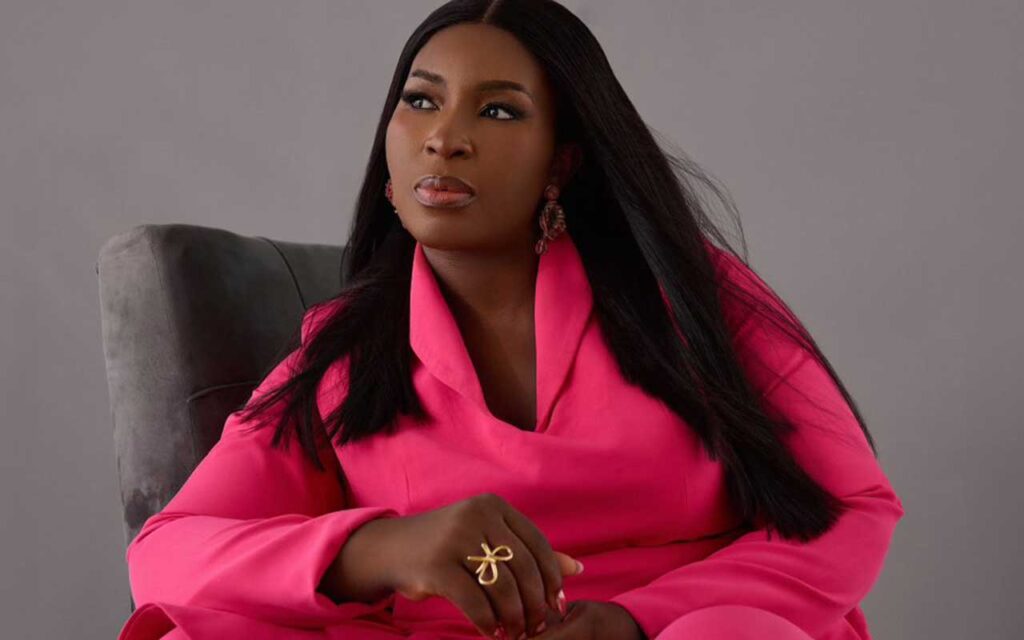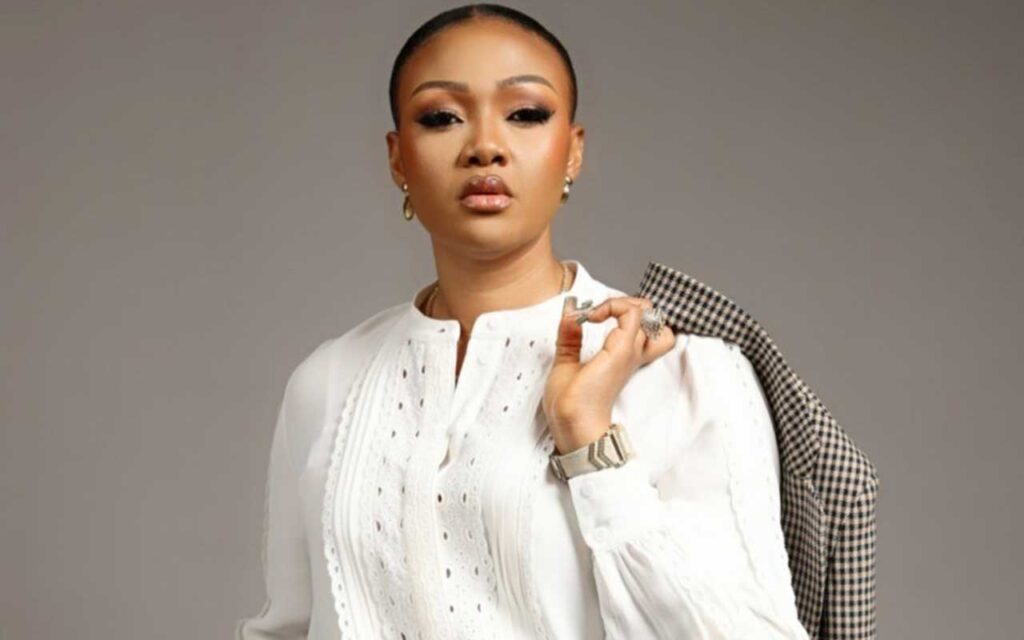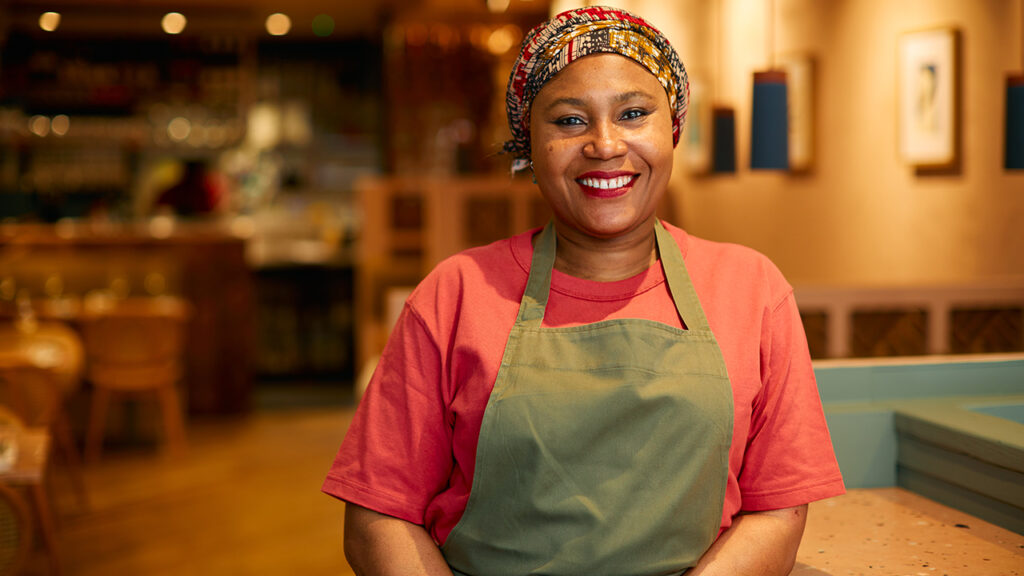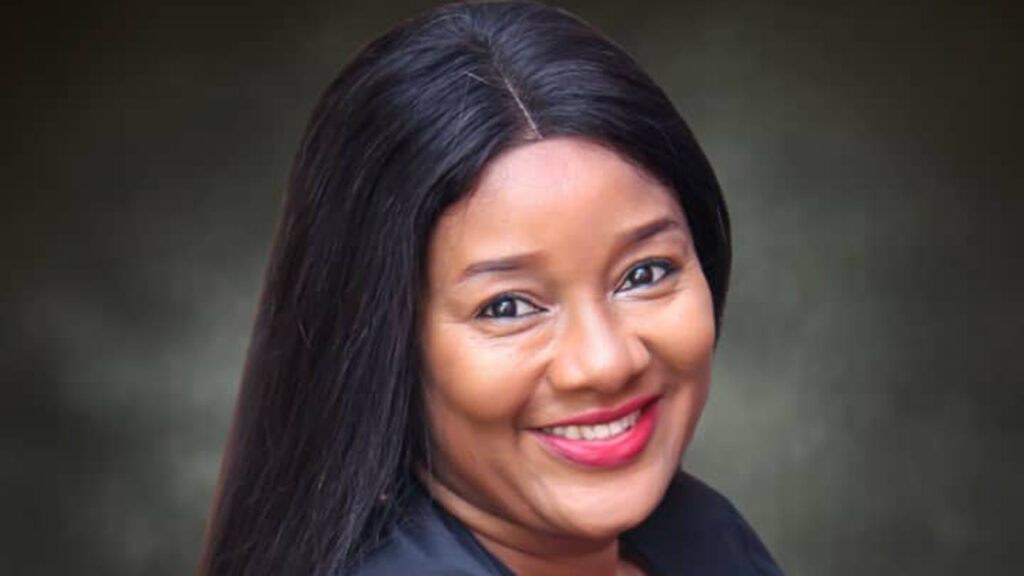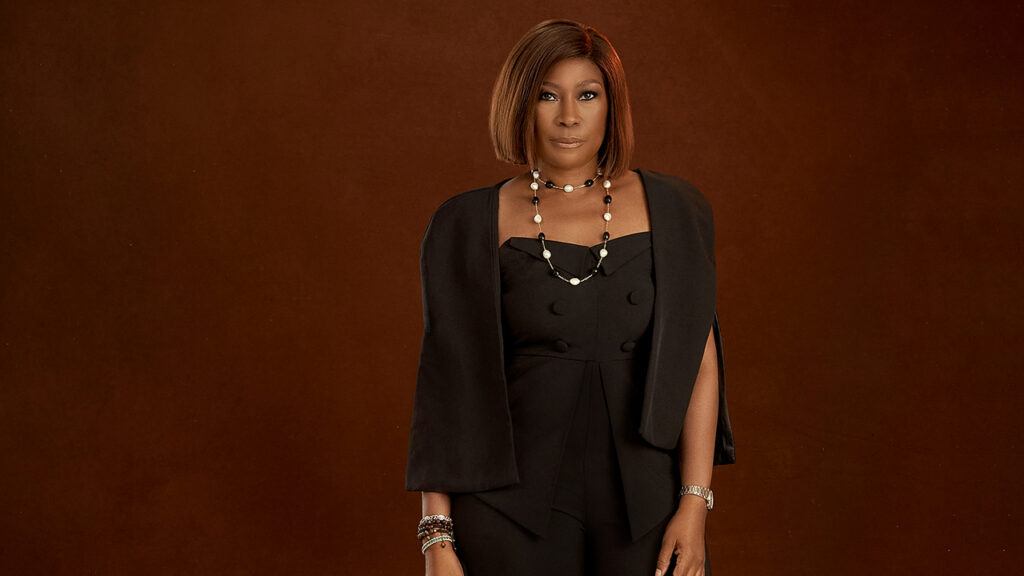
Chinasa Imo is an accomplished development and global health policy strategist. Currently, she is pursuing a PhD programme at the University of Chicago Crown Family School of Social Work, Policy and Practice. Her expertise lies in utilising political economy analysis and participatory approaches to examine and formulate policies and programmes that strengthen health systems, enhance governance, foster social accountability, and advance access to quality healthcare. Imo is the founder of Innovation Hub for Inclusiveness, Empowerment and Social Development –(SieDi-Hub), and the co-founder of African Youth Employment Initiatives (AYEII). Her primary focus encompasses underserved populations, specifically women, youths, and children residing in low-resourced, hard-to-reach, volatile communities. She holds a bachelor’s degree in public administration and master’s in diplomacy and strategic studies, and international development policy. She holds multiple local and international awards and fellowships and is a member of various global health women’s organisations and initiatives. In this interview with IJEOMA THOMAS-ODIA, she shares her commitment to community development.
Share your journey as a global health policy strategist and venturing into the development health sector.
My journey in the development sector commenced with community volunteering in Lagos in 2009. After completing my undergraduate studies in public administration from the Nnamdi Azikwe University, I moved to Lagos while awaiting deployment for the National Youth Service Corps. In 2011, amid the Jos crisis, I served in Jos, Plateau State, teaching computer science to junior school student at the Command Day Secondary School, Maxwell Khobe Military Cantonment Rukuba Barracks. Engaging with the National Agency for Control of AIDS as a member of the Community Development Service, we conducted health outreach programmes, educating adolescents on reproductive health and rights, and HIV prevention, unveiling entrenched inequalities in Nigeria, and broadening my career perspective.
Working closely with the military, I encountered the impact of crises like the Jos crisis and Boko Haram insurgency on vulnerable groups. This inspired me to pursue a master’s degree at the University of Lagos, focusing on conflict resolution and the impact of cultural norms on West African conflicts, including those in the Mano River Basin and how they impact women and children in those settings. When Ebola broke out in 2014, I joined the National Ebola response team in Nigeria, devising communication strategies and SOPs to combat the infodemic. Subsequently, I led humanitarian and psychosocial efforts in Sierra Leone for the AU-ASEOWA team. Returning to Nigeria in 2015, I embarked on various roles in development health organisations, championing health reform, policies, and global advocacy, including advocating for the Global Fund for AIDS, Tuberculosis, and Malaria during the Organisation for Economic Cooperation and Development (OECD) summit in France 2016 and The U.S. President’s Emergency Plan for AIDS Relief (PEPFER) reauthorisation in 2023. Over nine years, my work has focused on strengthening health systems, maternal, newborn, and adolescent health rights, and policy advocacy, contributing to Nigeria’s health landscape and global health initiatives.
As a behavioural economist passionate about improving outcomes for women, youth, and children, what drives you?
I am dedicated to achieving universal healthcare accessibility, particularly, in reducing preventable maternal and newborn mortality. Understanding human behaviour motivators guides my work at the crossroads of communities, underserved populations, and policy influencers. This endeavour demands conviction, passion, and an expectation of tangible outcomes. Notably, my impactful role in Niger State’s Maternal Perinatal Death Surveillance and Response (MPDSR) stands out. As the advisor for the Evidence For Action (E4A) -MamaYe programme, I activated MPDSR review committees across 23 health facilities, training staff for improved maternal and newborn care. Additionally, I established a state-led accountability system involving multiple stakeholders to enhance health indicators, advocate for increased health budgets, and contribute to state health planning. Ensuring these institutions persist in advancing healthcare quality remains an ongoing accomplishment.
As a young changemaker, I have collaborated with like-minded people in Africa to promote youth empowerment and sustainable development initiatives.
Share with us some of your activities running SieDi-Hub and AYEII
In the past 18 months, SieDi-Hub has successfully implemented over 15 projects, a few of which hold significant value. One of our key projects is the Community Health Improvement Programme, which is designed to work collaboratively with communities, identifying their health needs and utilising local resources to enhance health outcomes. We follow three core strategies: fortifying healthcare workers’ capabilities via telehealth applications, empowering local youth to lead health initiatives, and connecting community health concerns with state policy. This model, showcasing a participatory approach, has been presented at local and international conferences as an effective community development tool. Another pivotal initiative is our Online Safety Education Programme. Targeting diverse audiences, this programme educates secondary school students on cyber-hygiene, specifically addressing cyber-bullying issues. Moreover, we collaborate with international organisations to enhance digital safety practices within youth and women empowerment nonprofits. Partnering with entities like the American Corner, Boundless Hands Africa, Empower Next Generations, African Union, and others, SieDi-Hub and AYEII drive various empowerment programmes for women and youth in SMEs, transitioning young people to green economy and boosting market visibility via digital platforms that aim to both local and global outreach.
What do you consider a significant area of focus in revitalising the nation’s health sector?
Drawing from my experience in health emergency preparedness, systems, and community engagement, I stress the vital role of asking “the why questions” in revitalising health systems. Understanding the causes behind maternal and child mortality, inconsistent medical supplies, alternative medicine preferences, and substandard drugs is crucial. Accessing and analysing health data for decision-makers is essential to address these issues. Establishing a centralised health information system will empower health providers, administrators, and policymakers to make more informed decisions, regardless of location.
What are some development policies and guidelines for improving maternal and child health outcomes in Nigeria you are championing?
Effectively structuring and implementing the Basic Healthcare Provision Fund could significantly alleviate Nigeria’s preventable health challenges. Non-communicable diseases and domestic violence are escalating public health concerns; therefore, demanding the Basic Health Care Provision Fund (BHCPF)’s adoption across all Nigerian states is paramount. Addressing primary health facilities’ deficiencies, ensuring essential supplies, and advocating for health insurance are crucial steps to improving health outcomes. Additionally, we focus on advocating for the Cybercrime Act’s state-level adoption to aid in integrating cybersecurity and online child protection policies into educational curricula, fostering a safer online environment in Abia, Anambra, and Akwa Ibom states.
With your goal to impact and improve the healthcare system in Nigeria, what challenges have you been confronted with, and how can you surmount them?
Navigating Nigeria’s societal carelessness permeating policies and politics poses a significant challenge. Resource allocation to life-saving programmes lacks diligence, impacting programme delivery and healthcare quality. My journey in the health systems space encounters hurdles, especially in a male-dominated arena where women face barriers due to religiocultural practices that permeate the work environment.
Gaining trust amid such dynamics necessitates persistent engagement and strategic positioning. Second, securing resources for preventive healthcare initiatives remains challenging, given the low funding prioritisation for routine programmes. Leveraging multiple funding sources becomes imperative. Despite these obstacles, the consistent contribution of ideas in high-level policy dialogues and strategic resource mobilisation remain integral to surmounting these challenges.
How can we get more women to become successful and rise to the top as you have done? What tips do you have for younger women?
I am currently writing a memoir, and one of the chapters focuses on dissecting how African women inadvertently sustain patriarchy. My argument rests on two facets: first, women, as much as men, uphold a system that suppresses young women’s voices. Our fixation on upholding family honour impedes women from thriving and embracing their identity. Second, despite strides in women’s empowerment, there’s a lack of unified effort to dismantle systemic inequalities. To counter this, women should capitalise on the global shift towards inclusivity. Emphasising education is pivotal; informed women possess power and confidence. Mentorship programmes are essential, guiding young girls to transcend limitations and fostering independence. Cultivating a culture that validates women’s voices is crucial. Over the past five years, I’ve mentored young women, nurturing their ambitions and aiding their career trajectories, fostering skills development, and encouraging a culture of support among women. Encouraging more women to guide others toward success is imperative – We need more women to lead other women to light.
How can more women rise to the top and live their dreams?
I re-emphasise education’s pivotal role, especially for girls – it’s the gateway to boundless opportunities and self-discovery. Without education, I might have had a different life trajectory, perhaps, as a palm wine tapper’s wife. Education grants me the platform to engage globally and interact with diverse actors. It’s not merely formal education I’m talking about, but knowledge acquisition that takes varied forms. Women should embrace learning beyond classrooms, staying receptive to diverse information to define their career paths and seize emerging opportunities — education empowers women to define their futures.
What do you hope to see Nigerian women do differently?
I aim for Nigerian women to challenge patriarchal and cultural norms perpetuating gender inequality. We must halt passing traditions that stifle women’s voices to younger generations. Using our positions, we should advocate for girls’ autonomy and dreams without barriers. Creating inclusive forums for women to collaborate will collectively uplift and preserve women’s dignity.



